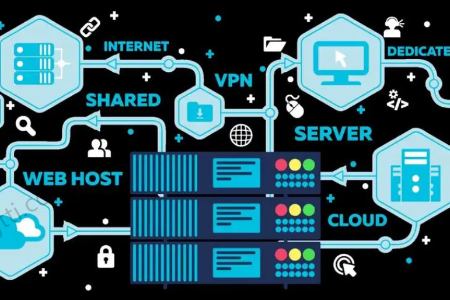Elastic Cloud Server is a cloud computing service model that uses virtualization technology to divide a dedicated server into multiple virtual servers, and can automatically adjust resource allocation according to business load. The elastic cloud server has flexibility, reliability, security, and stability, and provides users with better resource management and business operation and maintenance experience. There are many differences between Elastic Cloud Server and traditional dedicated servers. Here are some key differences between them:
1. Structure and deployment method:
Traditional dedicated servers are built based on dedicated hardware, including server chassis, processors, memory and other components, which require manual purchase, configuration and maintenance.
Elastic Cloud Server is based on virtualization technology, which can create multiple virtual instances on a dedicated server. Each instance runs independently and has its own operating system, processing power and resource allocation.
2. Elasticity and scalability:
The elastic cloud server has elasticity and scalability, and can quickly adjust resource configuration according to needs, including processing power, memory, storage space, etc., to adapt to business changes and traffic peaks.
The resources of a traditional dedicated server are fixed and cannot be adjusted quickly. If expansion is required, a new dedicated server may need to be purchased and configured.
3. Flexibility and resource utilization:
Elastic cloud servers can flexibly create, start, stop, and destroy virtual instances according to requirements, use resources flexibly, and pay on demand.
Traditional dedicated servers need to be purchased and configured in advance, resource utilization may not be high, and adjustments cannot be made on demand.

4. Reliability and fault tolerance:
Elastic cloud servers usually have high reliability and fault tolerance. If a dedicated server fails, the virtual instance can be migrated to other available dedicated servers to ensure business continuity.
When a traditional dedicated server fails, it may be necessary to manually switch to the standby server, resulting in a certain amount of downtime.
5. Management and maintenance:
The cloud service provider is responsible for the management and maintenance of the hardware and infrastructure of the elastic cloud server, including server monitoring, upgrade, backup and other operations.
Traditional dedicated servers need to be managed and maintained by enterprises themselves, including hardware failure repair, software update, security patch and other operations.
Generally speaking, compared with traditional dedicated servers, elastic cloud servers have higher flexibility, scalability and reliability, can better adapt to changes in business needs, and provide higher resource utilization and simpler management methods . However, which solution to choose needs to be comprehensively considered based on factors such as actual business needs, budget, and security.

 EN
EN
 CN
CN








